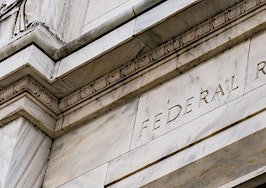Beyond the day-to-day challenges that slow a deal down, frequently larger, unforeseeable events can stop a deal dead in its tracks. Indeed, an unpredictable stock slide, natural disasters, political tiffs and international conflicts can all put buyers and sellers on edge.
More than 60 agents on a recent Inman Coast to Coast thread shared how these kind of events have impacted them, from short-term stock market dips that caused all-cash deals to fall apart, to more devastating financial upheavals such as the Great Recession, which snatched clients’ real estate dreams as banks shuttered and loans fell through.
“Just a few days before closing, the buyer’s business lost its line of credit,” broker Leslie Ebersole shared on Facebook. “The buyer’s lender pulled the loan approval. I never did get the listing sold. I tell [newer agents] about having $27 million in listings in July of 2009 and not a single one under contract.”
Beyond financial crises, domestic and international conflicts have brought deals to a halt as fears about safety kept buyers and sellers on the sideline. Many commenters recounted how the September 11 attacks fueled fears about living in high rises, and how buyers walked away from deposits as closings stopped in the days and weeks after the attack.
And more recently, issues regarding the United States’ immigration policies have given some foreign buyers pause. “[I’ve had a deal fail] several times,” said Brandon Doyle. “Most notably, a buyer who decided not to buy because of the threat of deportation. He’s a doctor here on a H-1B Visa.”
Unfortunately, there are always plenty of things for buyers to be spooked about — a deepening tariff war with China that could send the prices for items sky high, concerns that historically low-interest rates could soon be coming to an end, and that another, albeit less dramatic, housing crash is looming.
And that fear is reflected in the latest pending-home and existing-home sales data. Although pending-home sales have risen 1.6 percent year-over-year, existing-home sales faltered by 2.2 percent during the same time period, meaning that buyers are starting, but not sealing the deal. NAR Chief Economist Lawrence Yun says continued inventory shortages play a factor in the decline, but that “a lack of confidence” has a role to play.

Rick Palacios
John Burns Real Estate Consulting Director of Research Rick Palacios said buying a home is often the biggest financial decision that someone will ever make and, because of that, any unfavorable external factors can shut a deal down quickly.
“I think [buyers] have to be fairly certain of job certainty, the current state of the economy, the near-term outlook of the economy in order to make a purchase,” he told Inman. “So when you have any volatility, it causes some skittishness on behalf of the consumer and that’s rightfully so.”
Palacios says consumers are smart and in tune with overall economic and political trends that could make following through on a deal risky.
“I think consumers are smart, and they realize why mortgage rates are coming down and interest rates really across the board,” he added. “When you get mortgage rates moving down, and the Fed starts cutting rates to stimulate economy, that’s the situation we’re in right now.”
“So, when you go to make a purchase on a home, that’s going to cause you to reconsider whether the economy is on solid ground or not.”

Selma Hepp
Compass Vice President of Business Intelligence Selma Hepp agrees that consumers are savvy, but that some of their fears can be strongly influenced by past experience than current market factors.
“Despite lower interest rates and more inventory in some markets, and despite higher wages, consumers perception on if it’s a good time to buy right now has been declining,” she said. “It’s been a bit of a puzzle for us.”
Hepp says today’s buyers are concerned that softening home price growth is the beginning of another Great Recession, similar to that of 2008. “When they think of a fall, they’re immediately thinking about the 2007 to 2009 period where home prices in some areas dropped 50 to 60 percent,” she explained.
The fear of being wrapped up in another economic fallout is keeping buyers from sealing the deal, a decision that can negatively impact the national gross domestic product. According to Hepp, the housing market accounts for 15 percent of the U.S.’s GDP, and when buyers and sellers aren’t making deals and builders are responding to that by cutting building efforts, the whole economy suffers.
Palacios calls this a “negative feedback loop,” where everyone is making decisions based on waning consumer confidence regarding real and perceived risks.
Hepp, who helps Compass agents work through these very issues, says the loop can be mitigated by talking to consumers about their specific concerns and how they relate to economic and political changes.
“Talking to consumers about what is different this time around and what the general economic forecast about what is going to happen to home prices, can be helpful,” she said. “Maybe [home prices] aren’t going to grow 10 percent year-over-year for the next few years, but they’ll remain a steady 2 or 3 percent. That’s still a different perception than home prices declining.”
After that conversation, it may still be in the best interest of the buyer or seller to call off a deal, but at least you’ve done your due diligence as an agent, Hepp said.









